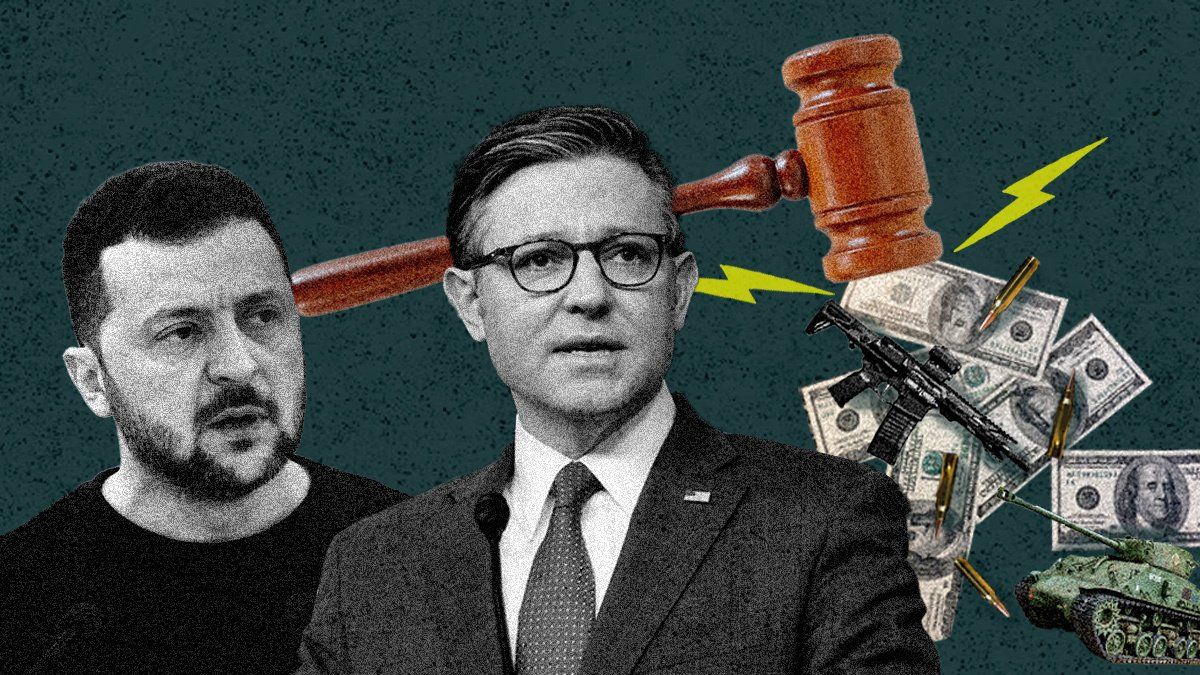April 24, 2024
Paraphrasing a quote often misattributed to Winston Churchill, the United States Congress finally decided to do the right thing … but not a moment too soon, and only after trying everything else first.
Last Saturday, the House of Representatives overcame months-long opposition from the far-right wing of the Republican Party and okayed a fresh military assistance package for Ukraine. Totaling nearly $61 billion, this is the largest single aid package the besieged nation will have received since the war’s onset. The bill passed the Senate on Tuesday night and was signed into law by President Joe Biden a few hours ago. Some of the newly appropriated American weapons systems and ammunition will begin flowing into Ukraine and reaching the frontline within days.
Congress had last authorized Ukraine funding in December 2022, when Democrats still controlled both chambers. Since then, further aid had been blocked by MAGA Republicans aligned with former president and presumptive GOP nominee Donald Trump. The legislative breakthrough came over the weekend when House Speaker Mike Johnson, alarmed by the intelligence briefings he’d received on the war’s outlook and the scope of Vladimir Putin’s aims (and spurred by Iran’s attack on Israel), ultimately decided to take up the bill on a bipartisan basis despite the threat of removal from within his own party. Once it was brought to the House floor, the bill sailed through 311 to 112.
The decision couldn’t have come at a more critical time for Ukraine’s defense. Congressional inaction had rendered the outgunned and outmanned Ukrainian military desperately short of the artillery and air defense ammunition it needed to fend off both Russian advances on the frontline as well as drone and missile strikes against its cities and power infrastructure. This allowed Moscow to seize more than 135 square miles of Ukrainian territory since the start of 2024, especially in the eastern Donetsk region, including most notably the strategic city of Avdiivka in February.
Indeed, up until last weekend, Ukraine was in danger of suffering a major setback later this spring or summer, when Russia is expected to conduct a major offensive in Donetsk. A territorial breakthrough there could have put Ukraine on course to lose the war as soon as 2025.
The influx of fresh American aid will have an immediate impact on the battlefield, helping the Ukrainians to close the artillery gap with Russia (10-to-1 earlier this month, according to President Volodymyr Zelensky), increasing the odds that they can hold their ground in Donetsk against Russia’s upcoming offensive, and making a return to 2023’s stalemate more likely through at least the end of the year. In that sense, US funding is a meaningful near-term stabilizer.
That said, closing the ammunition gap alone won’t be enough for Ukraine to stabilize the frontline. To do that, Kyiv also needs to address its military’s other big challenge: a manpower shortage. The hard-fought and politically unpopular but much-needed law lowering the mobilization age from 27 to 25, reducing service exemptions, and extending conscripts’ terms of service signed by Zelensky earlier this month should help – provided that new troops are properly trained and deployed. Ukraine also has to build up fortifications along the frontline and secure enough air defense systems to protect its cities and infrastructure amid strained supplies due to the Middle East war. If they manage to do all these things, the Ukrainians will be on a stronger military footing going into 2025 than they are now.
Alas, none of this will be enough for Ukraine to turn the tide of the war. The aid package will not give Kyiv any offensive capability this year, and it is likely to be the last major one the US approves in 2024 – and possibly ever if Trump wins the US election in November or Republicans take the Senate. Even if Biden wins a second term, there’s little domestic political support for America to continue to provide $60 billion a year every year until Russia runs out of men to throw at the “meat grinder” and accepts defeat.
Rather than a silver bullet or a turning point, the US aid package is a lifeline that will keep the Ukrainians in the fight for another year, buy the Europeans precious time to step up their defense-industrial production game, and strengthen Kyiv’s negotiating position so that when the time comes to accept the unacceptable yet inevitable outcome of a partitioned Ukraine, it is able to extract the best terms it possible can.
You don’t have to like it. I sure don’t. That doesn’t mean it ain’t happening.
More For You
- YouTube
At the 2026 Munich Security Conference, entrepreneur and Project Liberty founder Frank McCourt makes the case that the internet, and the AI systems rapidly reshaping it, must be redesigned to serve people, not platforms.
Most Popular
- YouTube
At the 62nd Munich Security Conference, Parag Khanna, founder and CEO of AlphaGeo, says globalization isn't dead, it's evolving. Speaking with GZERO’s Tony Maciulis, he explains that countries are forming flexible alliances that expand and shrink based on their interests. “You’d rather be in the tent...if it suits your interest than not in it,” Khanna notes, highlighting how the US, Europe, and Asia are adapting to shifting global priorities.
- YouTube
Sovereignty has become one of the most powerful, and least defined, words in tech policy. At the 2026 Munich Security Conference, SAP global head of government affairs, Wolfgang Dierker, explains why governments and enterprise customers are demanding more control over their data, cloud infrastructure, and AI systems amid rising geopolitical uncertainty.
- YouTube
On the sidelines of the 2026 Munich Security Conference, Annemarie Hou, Executive Director of the United Nations Office of Partnerships, joined Tony Maciulis to discuss the power of women leaders in global decision-making.
© 2025 GZERO Media. All Rights Reserved | A Eurasia Group media company.
